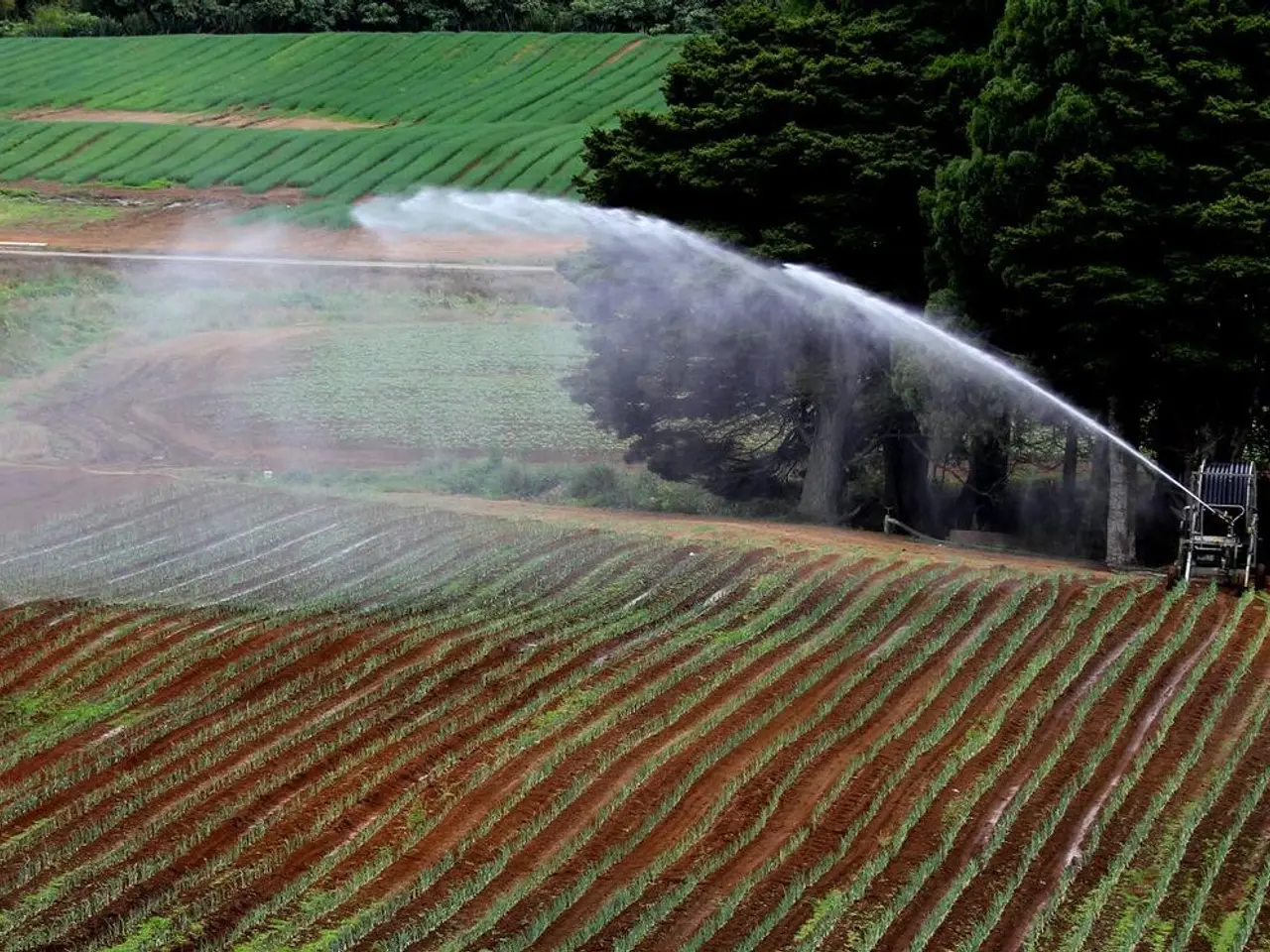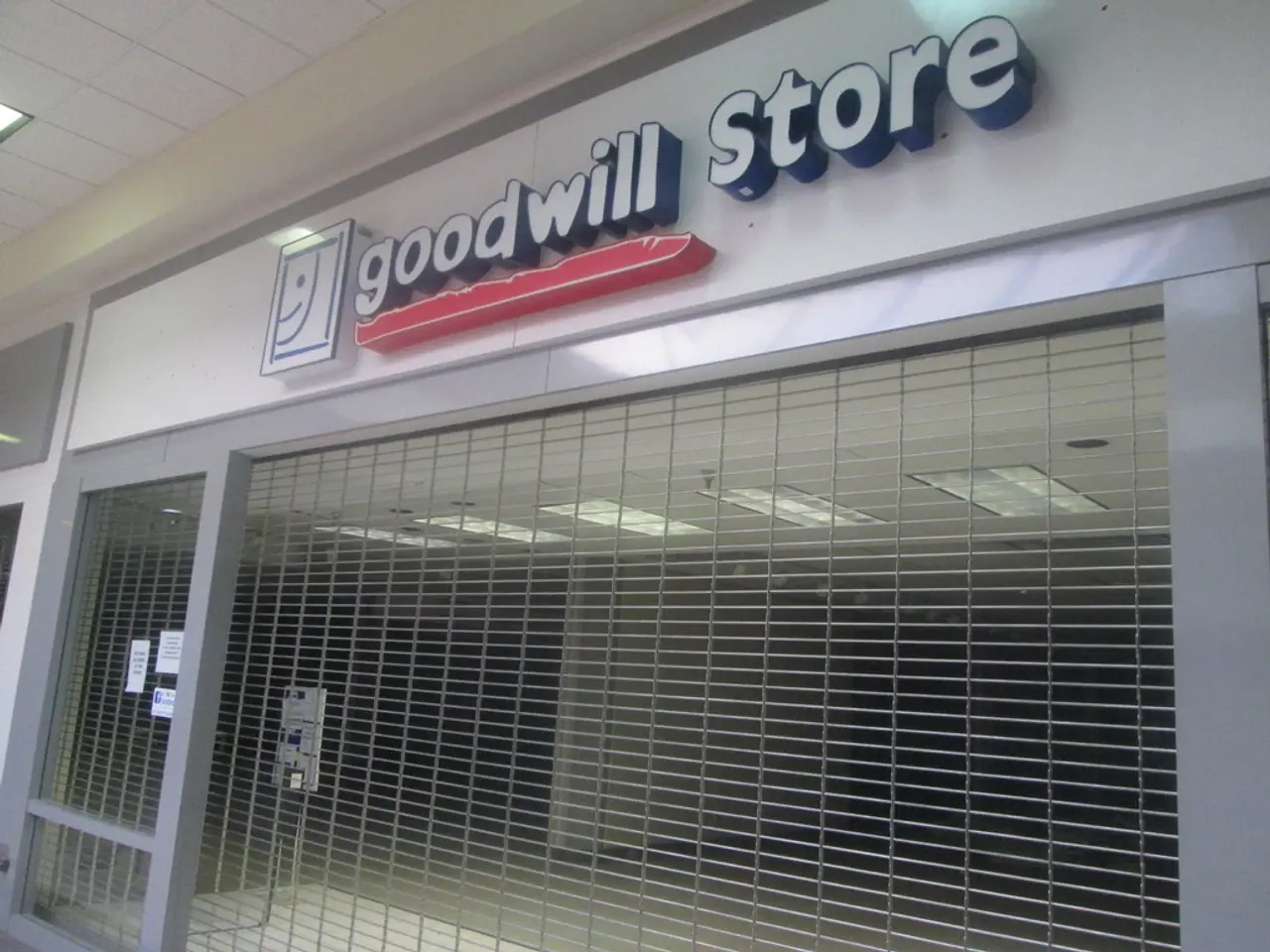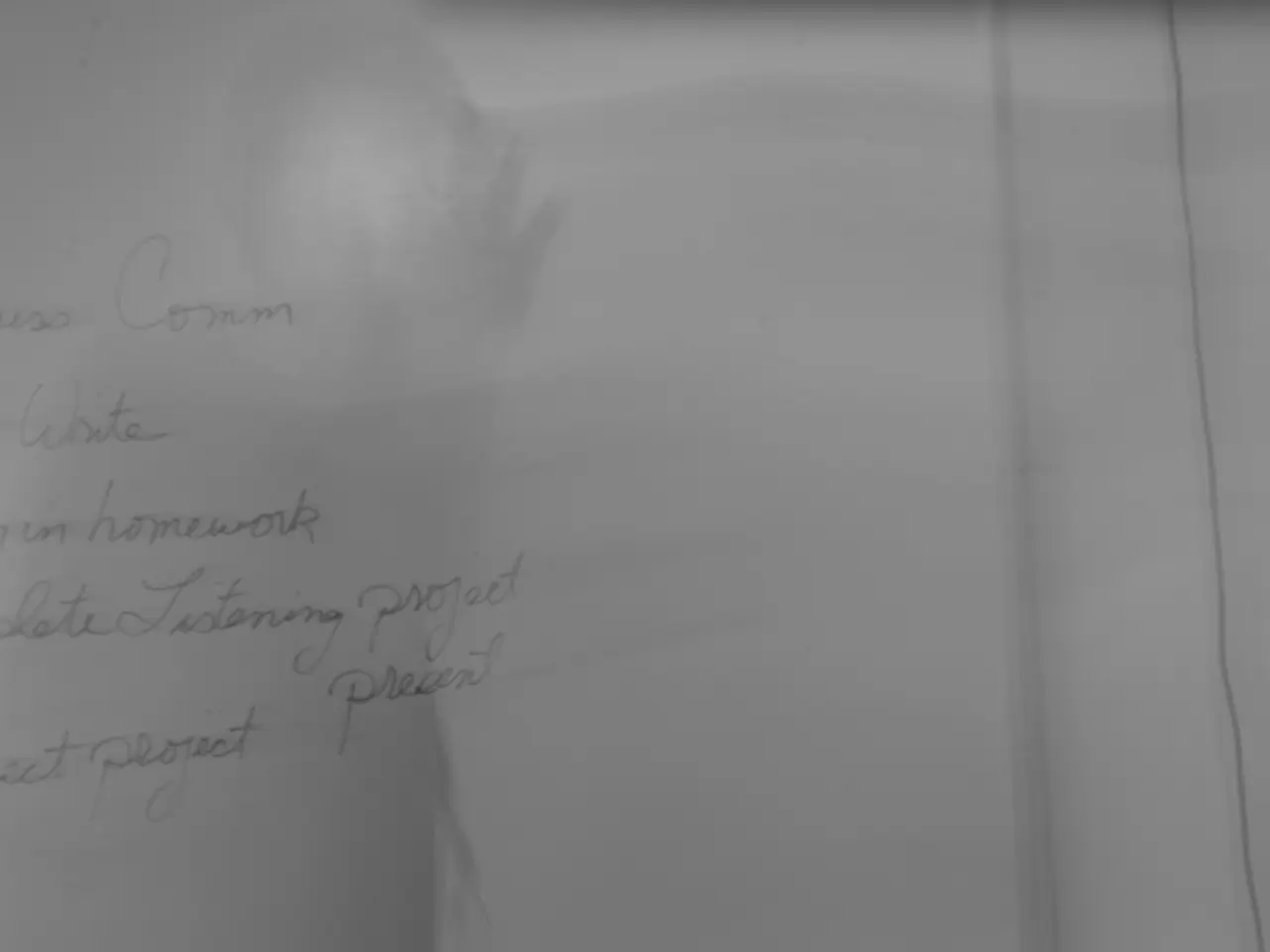Dutch initiative to acquire numerous farms in the pursuit of curtailing excessive nitrogen emissions
In a bid to address the escalating nitrogen emissions crisis, the Dutch government has recently revised its approach, moving away from large-scale compulsory buyouts of farms towards a more targeted and voluntary strategy.
The shift comes after the Dutch nitrogen emission reduction plan was deemed insufficient and in violation of European conservation legislation in 2019 [1]. Since then, the issue has sparked one of the largest farmer protests in the Netherlands and has been met with ongoing legal challenges [3].
The previous €25 billion fund has been reduced to €5 billion, with the focus now on innovation for reducing nitrogen emissions and a voluntary buyout scheme for farmers willing to exit the sector [1]. Approximately €1.25 to €2.5 billion is allocated for innovation, and a similar amount for the voluntary buyout scheme.
The Remke report, presented by long-serving politician Johan Remkes on October 5, forms the basis of this new strategy [2]. Mr. Remkes proposed buying out 500 to 600 large nitrogen emitters, primarily farms, to allow nature to recover [2]. However, the buyout plan will not involve forced expropriation; entrepreneurs will have the opportunity to adapt or modify their activities before the government considers buyouts [2].
The buyout approach remains voluntary rather than compulsory and is part of a broader strategy emphasizing innovation, expanding nature areas, and flexible emissions targets [3]. In Gelderland, the problem lies more in the available budget for buyouts than in the number of volunteers [1].
In a context of strong mistrust towards authorities, the Remke report was met with mixed feelings by farmer organizations [1]. Agriculture Minister Henk Staghouwer resigned in September, feeling he was not the right person to manage the situation [1]. His replacement, Piet Adema, was appointed in early October.
The government's plan aims to act quickly and have it ready by November to reach an agreement with the agricultural sector by early 2023 [1]. However, only a small portion of the 350 million euros allocated by the government to a voluntary buyout program for farmers has been spent so far [1].
The new strategy also involves enforcement of current nitrogen regulations being postponed for certain farmers affected by legal rulings, prolonging uncertainty in the sector [1]. Greenpeace Netherlands has sued the government in early 2025 for not meeting emission reduction targets, indicating continued scrutiny and legal pressure on Dutch nitrogen policies [3].
Sources: [1] NOS, 2023. Dutch government scales back nitrogen emissions plan, focusing on voluntary buyouts and innovation. [online] Available at: https://nos.nl/artikel/2424066-nederlandse-regering-schaal-nitrogenplan-terug-en-focus-op-vrijwillige-uitkopen-en-innovatie.html [Accessed 12 November 2023]. [2] RTL Nieuws, 2023. Remkes wil 500 tot 600 grote nitrogenvervuilers kopen. [online] Available at: https://www.rtl.nl/nieuws/binnenland/article5664156/remkes-wil-500-tot-600-grote-nitrogenvervuilers-kopen.html [Accessed 12 November 2023]. [3] De Volkskrant, 2023. Nitrogencrisis: Remkes wil 500 tot 600 grote nitrogenvervuilers kopen. [online] Available at: https://www.volkskrant.nl/nieuws-achtergrond/nitrogencrisis-remkes-wil-500-tot-600-grote-nitrogenvervuilers-kopen~b1842096/ [Accessed 12 November 2023].
- The Dutch government's revised strategy for reducing nitrogen emissions focuses on innovation and a voluntary buyout scheme for farmers in the environmental-science sector, with about €1.25 to €2.5 billion allocated for this purpose.
- In the general-news arena, the Dutch nitrogen emission reduction plan, which was deemed insufficient and in violation of European conservation legislation in 2019, has led to widespread farmer protests and ongoing legal challenges.
- This new approach is a shift away from large-scale compulsory buyouts of farms, as proposed by the Remke report, and instead enables farmers to adapt or modify their activities before considering buyouts, which will not involve forced expropriation.
- The financial industry has a significant role to play in this crisis, as the previous €25 billion fund has been reduced to €5 billion, with the majority of funds allocated for innovation and a smaller portion for the voluntary buyout scheme.
- In the realm of politics and business, the government's plan aims to act quickly, with a target of reaching an agreement with the agricultural sector by early 2023, but only a small portion of the allocated funds for the voluntary buyout program has been spent so far, leading to continued scrutiny and legal pressure from organizations such as Greenpeace Netherlands.




